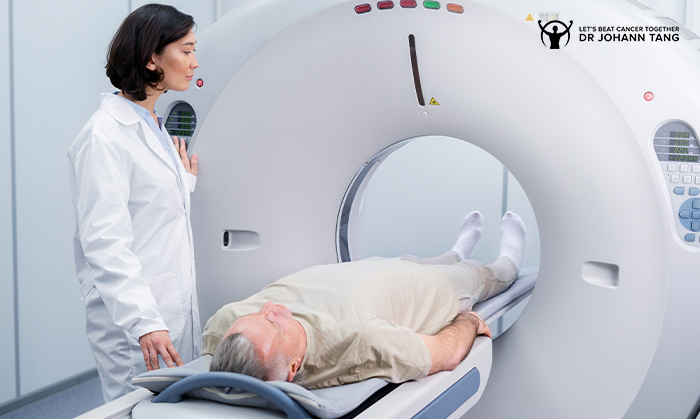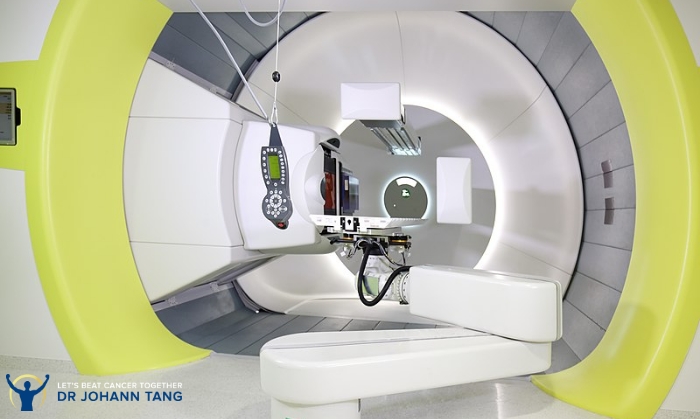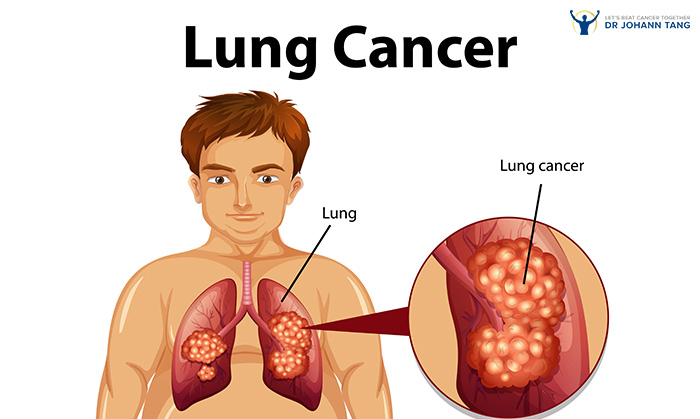Understanding The Different Types And Stages Of Lung Cancer
Medically reviewed by Dr Johann Tang, Senior Consultant Radiation Oncologist

Lung cancer is cancer that begins in the lungs. One of the leading causes of cancer deaths worldwide, it can cause chronic coughing, coughing up blood, shortness of breath, chest pains, weight loss, bone pain, and several other symptoms.
There are two main types of lung cancer. Small cell lung cancer, which typically makes up 10%-15% of all lung cancers, and non-small cell lung cancer, which is more common.
Each type of lung cancer is also described in stages. Staging is a useful way of describing where the cancer is located, how far it has spread, the size of the tumour, and other key factors. Generally, a lower number stage is linked to better outcomes
Learn More: The Onset Of Lung Cancer And Available Treatment Methods
Non-small cell lung cancer
Non-small cell lung cancer (NSCLC) is a term that encompasses several different kinds of lung cancer. They include squamous cell carcinoma, adenocarcinoma and large cell carcinoma.
NSCLC is usually staged using the TNM system, which is an acronym for tumour, nodes, and metastasis. These 3 factors are usually considered together when making a determination of the cancer stage a patient is presenting with.

An oncology doctor will examine your lungs to find the size and the extent of the tumour. Tumours are usually a few centimetres in length and start in the lungs, but can metastasise to spread to other nearby structures and organs in more advanced stages.
The second factor to consider is whether the cancer has spread to the lymph nodes. If cancer cells are found or suspected to be in your lymph nodes, it can mean that more tests are necessary.
Thirdly, metastasis refers to the spread of cancer cells to distant organs such as the brain, bones, liver, or the other lung.
NSCLC Staging
Staging for NSCLC can be complex, and your oncology doctor is best positioned for you to clarify matters. In broad terms, NSCLC staging can be defined as such:
Stage 0: The tumour is very small and in place. It has not invaded any deeper into your lungs, nor has it spread to the lymph nodes or distant parts of the body.
Stage 1: The cancer is in your lung tissue and the tumour is not larger than 4 centimetres across. It has not spread to the lymph nodes or other parts of your body.
Stage 2: The tumour is anywhere between 4cm – 7cm. It may have spread to the lymph nodes adjacent to your lung, but has not spread to other parts of your body.
Stage 3: The cancer has spread further into your lymph nodes and the structures and spaces in the middle portion of your chest. At this stage it still has not spread to distant parts of the body.
Stage 4: The cancer can be any size and may have spread to the other lung, more distant lymph nodes, or to other organs. Lung cancer treatment options at this stage will depend on the location of distant cancer cells and the extent of the spread.
Small cell lung cancer
Small cell lung cancer (SCLC) is rarer than NSCLC and is more associated with heavy smokers. It is more aggressive than NSCLC and tends to spread quicker to other parts of the body. Rather than using the TNM system, SCLC tends to be staged using a two-stage system.
SCLC Staging
Limited Stage: The first stage of SCLC, at the limited stage the cancer is only found on one side of the chest, involving just one lung, and the nearby lymph nodes.
Extensive Stage: At this point, the tumour may have spread to your other lungs and other areas of the chest. It might also be found in the fluid around your lungs or other distant organs.

Both the type of lung cancer and its staging will guide decision making when it comes to possible lung cancer treatment options in Singapore. Understanding the different types of lung cancer and how the staging system works can make it easier for patients to be more aware and knowledgeable about their condition, and empowers them to ask their doctor the right questions.
With his years of experience in treating many different types of cancers, Dr Johann Tang is a caring and patient-centric clinician who is dedicated to delivering high levels of care. Contact us today to send in your queries and make an appointment with our team.
Related Articles
Read this next ...

Dr Johann Tang
Senior Consultant Radiation Oncologist
Medical Director of ME Novena Specialist Group Pte Ltd
MBBS (Aust), FRANZCR (Radiation Oncology)
Dr Johann Tang is the Senior Consultant and Medical Director of ME Novena Specialist Group Pte Ltd. at Mount Elizabeth Novena Hospital and an Assistant Professor at the Yong Loo Lin School of Medicine, National University Singapore. Dr Tang’s journey towards being a radiation oncologist in Singapore started with him obtaining his medical degree from the University of Newcastle, Australia, in 1998 and completing his house officer training at the Hunter Area Health Service before returning to Singapore to complete his National Service in the Singapore Armed Forces Medical Corps. Thereafter, he did his specialty training in Radiation Oncology in Singapore at the National University Hospital (NUH). After obtaining his fellowship from the Royal Australian College of Radiologists (FRANZCR) in 2007, Dr Tang underwent breast brachytherapy fellowships at the University of Wisconsin as well as prostate brachytherapy, skin, and paediatric fellowships at the Peter Maccallum Cancer Institute, Australia. In 2021, Dr Tang underwent a fellowship at the New York Proton Centre with Dr Charles Simone in head and neck, re-irradiation, paediatric, prostate, and lung cancers.
Why Choose Dr Johann Tang
Dr Johann Tang is an experienced radiation oncologist and cancer doctor who aims to deliver the highest level of care to his patients, especially when it comes to radiation therapy and cancer treatment. As a cancer specialist in Singapore, he is dedicated to understanding each patient’s condition and providing holistic, customised care that is both effective and compassionate. With ethics and empathy at the core of our practice, we strive to understand your individual needs and provide care that is compassionate and responsive.
"I guarantee my very best expertise delivered with compassion and dignity as we journey TOGETHER to BEAT this dreaded illness."
Make An Enquiry
Got Queries? Book an appointment with Dr Johann Tang by filling up this form. We'll get on a call with you as soon as possible.
Prefer to talk? Call us directly at +65 6690 6811
or email us at drjohanntang@gmail.com





